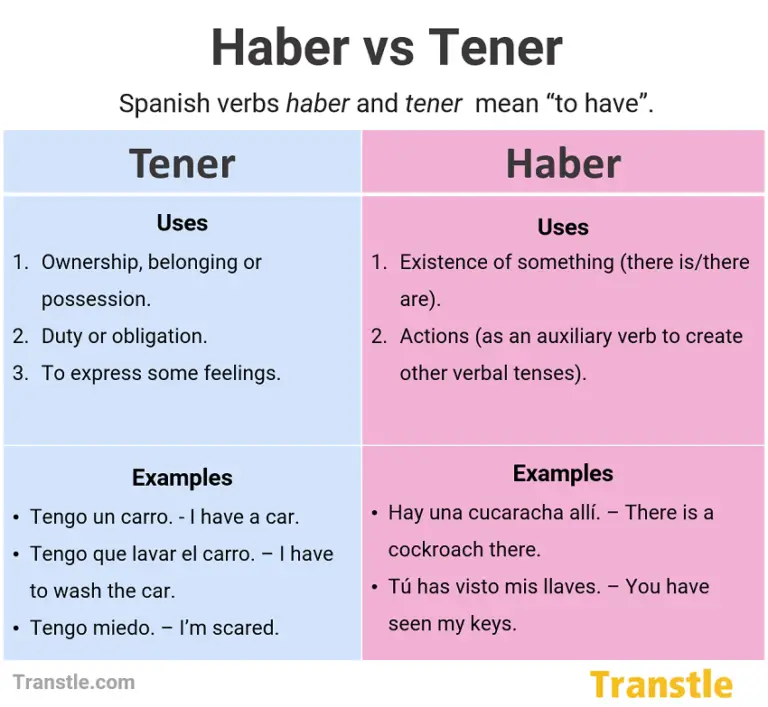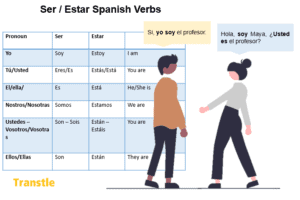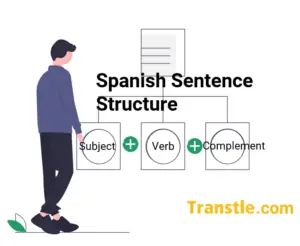Haber and Tener in Spanish

Haber and tener
Haber and tener are two Spanish verbs and both mean “to have,” but they are used in different ways and contexts. Tener is used to express ownership or possession, obligation, and some feelings or states, examples are “I have a dress”, “I have to go”, “I’m hungy”.
Haber, on the other hand, is often used as an auxiliary verb to form compound tenses, such as the present perfect tense, and to express the existence of something or someone, or to convey that an action has been completed. Examples are “There is a problem”, “I have read this lesson” .
Conjugation of haber and tener in the present tense
| Subject | tener | haber | English |
| Yo | tengo | He | I have |
| Tu | tienes | Has | You have |
| El/ella | tiene | Han | He/she has |
| Nosotros | tenemos | Hemos | We have |
| Ustedes | tienen | Han | You have |
| Ellos | tienen | han | They have |
Tener
Tener to express ownership/possession
Subject + tener + what is owned or possessed
|
Tener to express duty or obligation
Tener can also be used to express duty or obligation in Spanish, and it can be used as a synonym for the English verb “must.”
Subject + tener + que + what has to be done/happen
|
Tener to express feelings or states
Subject + tener + feeling or state
|
Note for beginners: If you’re a beginner, all you should learn for now is all of the above, the following information is for more advanced lessons.
Haber
Haber acts as a main verb to express existence, and as an auxiliary for actions.
- As a main verb to express existence. In this context, haber is often used with the impersonal pronoun “hay” to mean “there is/are”. Haber (Hay) + what exists
Hay una fiesta en mi casa. – There is a party at my house. Hay una mosca. – There is a fly. Hay muchas tiendas. – There are a lot of stores. |
- As an auxiliary verb to form compound tenses and express actions that have been completed. In this context, haber is used with a past participle to form compound tenses such as the present perfect.
Yo he estudiado español por dos años. (I have studied Spanish for two years). ¿Ustedes han visto mi lápiz?. Have you seen my pencil? |
Conjugation of haber
| Spanish | English |
| Yo he | I have |
| Tú has | Youhave |
| Él/ella ha | He/She/ has |
| Nosotros hemos | We have |
| Ustedes han | You have |
| Ellos han | They have |
Haber + past participle
Haber + past participle is a compound tense in Spanish that is used to express completed actions in the past. This is just one of the verbal tenses that can be formed with haber
The structure of this tense is: Subject + haber + past participle.
|
Haber and Tener in Past simple
| Subject | tener | haber | Inglés |
| Yo | tenía | había | I had |
| Tú | tenías | habías | Youhad |
| Él/ella | tenía | había | He/shehad |
| Nosotros | tenían | habíamos | Wehad |
| Ustedes | tenían | habías | Youhad |
| Ellos | tenían | habían | They had |
Examples
|

Exercises
Complete the folowing exercises of haber and tener.
Exercise 1: Complete the sentences with the correct form of tener.
- Yo __________ hambre. (I am hungry)
- Tú __________ un perro. (You have a dog)
- Ellos __________ que estudiar para el examen. (They have to study for the exam)
- Ella __________ frío. (She is cold)
- Nosotros __________ una casa en la playa. (We have a house on the beach)
Exercise 2: Complete the sentences with the correct form of haber.
- __________ un problema en el trabajo. (There is a problem at work)
- Yo nunca __________ estado en Nueva York. (I have never been to New York)
- ¿Cuántos años __________ vivido en esta ciudad? (How many years have you lived in this city?)
- Ellos __________ terminado la tarea. (They have finished the homework)
- No __________ ninguna excusa para no hacer ejercicio. (There is no excuse for not exercising)
Answers
Exercise 1:
Yo tengo hambre. (I am hungry) Tú tienes un perro. (You have a dog) Ellos tienen que estudiar para el examen. (They have to study for the exam) Ella tiene frío. (She is cold) Nosotros tenemos una casa en la playa. (We have a house on the beach)
Exercise 2: Complete the sentences with the correct form of haber.
Hay un problema en el trabajo. (There is a problem at work) Yo nunca he estado en Nueva York. (I have never been to New York) ¿Cuántos años has vivido en esta ciudad? (How many years have you lived in this city?) Ellos han terminado la tarea. (They have finished the homework) No hay ninguna excusa para no hacer ejercicio. (There is no excuse for not exercising)
Read next



